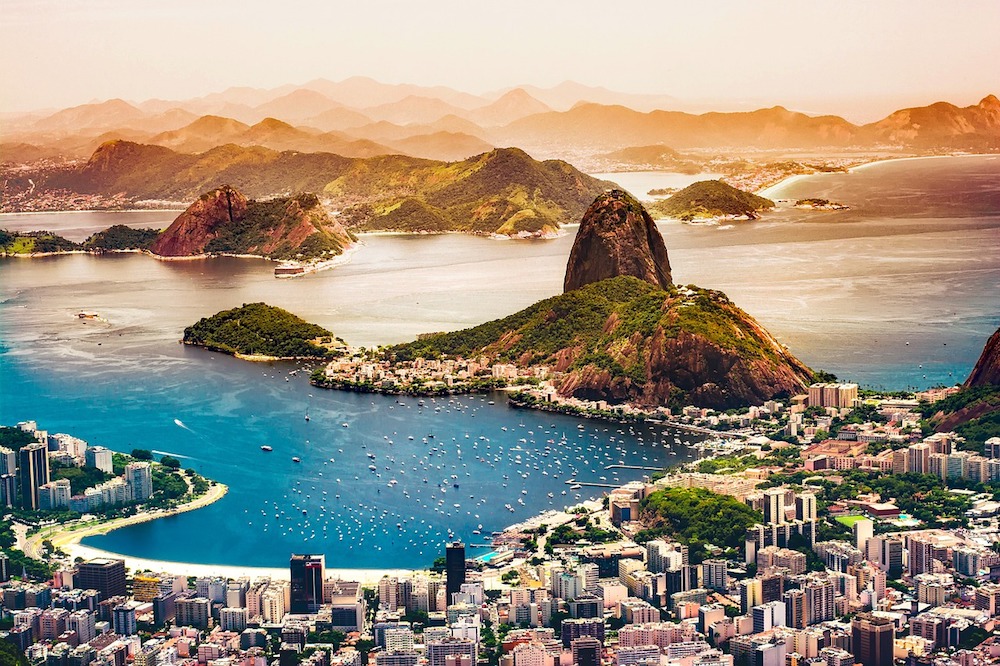Places to Work Abroad or Retire with a Second Passport

There’s been a lot of movement among people looking at places to work or retire abroad, especially since many now have the option to work from anywhere.
According to International Living, there are several destinations for sourcing a second passport and residence quickly, and without buying or inheriting it. They say that Americans exploring their move-out-of-the-U.S have plenty of places around the world that only take 2-5 years to gain citizenship-by-naturalization, and it’s perfectly legal for Americans to hold dual-citizenship.
HOW IT WORKS
“Second passports and residence in other countries have long appealed to Americans interested in greater flexibility in their travels and investments,” says Jeff D. Opdyke, editor of The Savvy Retiree, a publication of International Living. “These days, that interest is rising—sharply—with more people seeking an ‘escape plan’ should the U.S. no longer suit them in the years to come, whether that be for political, economic, or social reasons.”
It’s possible to effectively buy a passport by investing in certain countries—but to do so typically requires a minimum of $100,000. It’s possible to gain citizenship (and a passport) through family heritage, too. But the genealogy route is hit or miss, depending on the country.
“There is, however, a less-costly, more-organic, nearly assured path: Move somewhere and gain citizenship—and a passport—via the naturalization process,” Opdyke says, “and that’s not as difficult as it might sound.
“While lots of countries require that you live within their borders for a decade or longer before you can apply for citizenship, several impose a much-shorter timeline of between two and five years. And as a U.S. expat who’s lived in Prague now for nearly two years, I can tell you those years fly by quickly.”
It’s legal for U.S. citizens to hold dual citizenship (and two—or more—passports), which means one needn’t give up their U.S. citizenship to avail themselves of the benefits a second citizenship can provide.
“Right now, for instance, a U.S. passport isn’t opening many doors if you’re traveling from the States, but if you had a second passport, you could go on that,” Opdyke says. “It can simply open doors—and provide options not only for greater movement, but for investments, and overseas living as well.”
For folks considering securing citizenship and a second passport, the International Living report explores several countries where the process of citizenship-by-naturalization is relatively quick:
Argentina: 2 Years
Two short years in one of the world’s truly beautiful countries and you can apply for citizenship and, thus, an Argentine passport—the 19th most-powerful passport on the planet in that it gives you access to 170 countries without needing a visa.
There are definitive requirements for Argentina:
• Proof that you’ve lived continuously in Argentina for two years.
• Be over 18 years old.
• Proof of adequate income or employment.
• Passport.
• A DNI card—an Argentine residence permit.
• Proof of no serious criminal record.
Argentina seemingly has a financial crisis du jour. Still, if one’s life is denominated in dollars, their lifestyle in the land of tango will be pretty sweet. Argentina allows you to hold dual nationality as an American.
Peru: 2 Years*
The asterisk here ties to Peru’s requirement that a non-Peruvian can apply for citizenship two years after acquiring residence in the country. That’s not hard; with the correct documents folks can apply for Peruvian residence while visiting on a tourist visa. But it could take several months to complete the residence process.
Once you’ve been a resident for two years, citizenship can be applied for. The necessary documents are similar to those in Argentina, but there are also requirements:
• Write an application to the president of Peru.
• Prove you’re healthy.
• Can communicate in Spanish, and pass an exam about Peruvian history, culture, and geography.
Ecuador, Honduras, Poland, Paraguay: 3 Years
Ecuador demands three continuous years, and if there is an interruption of more than 90 days, folks have to start over.
Honduras shortens the requirement to two years if you are Ibero-American (from a Spanish or Portuguese-speaking country).
Poland is interesting because it’s a European Union member, meaning this is the quickest path to an EU passport. One will also need proof of a stable source of income, such as Social Security or a pension. Perhaps the hardest requirement: proof—by way of official certificate—that you can speak Polish, not one of the world’s easiest languages for native English speakers.
Paraguay is straightforward: Live there for three years as an upstanding citizen.

Brazil: 4 Years
Very much like Paraguay in how easy it is. Four years of continuous residence in the country, command of Portuguese, and no criminal record.
5 Years
Australia, Barbados, Belize, Chile, Colombia, Czech Republic, Finland, France, Ireland, Jamaica, Latvia, Mexico, Netherlands, New Zealand, Panama, Singapore, Sweden, Taiwan, Thailand, Turkey, United Kingdom, Uruguay: 5 years
This is not a complete list of the five-year countries. Quite a few others impose requirements that make them less appealing (Indonesia and Japan require that you relinquish your U.S. nationality), or they’re countries most won’t rush to, such as Iran, Congo, or Afghanistan.
Most of these countries are straightforward: five years of continuous residence.
Finland requires folks speak Finnish or Swedish, the Netherlands requires applicants be conversant in Dutch, and Thailand demands folks speak Thai.
Panama wants to know you can speak Spanish and have a basic understanding of Panamanian history, geography, and politics.



